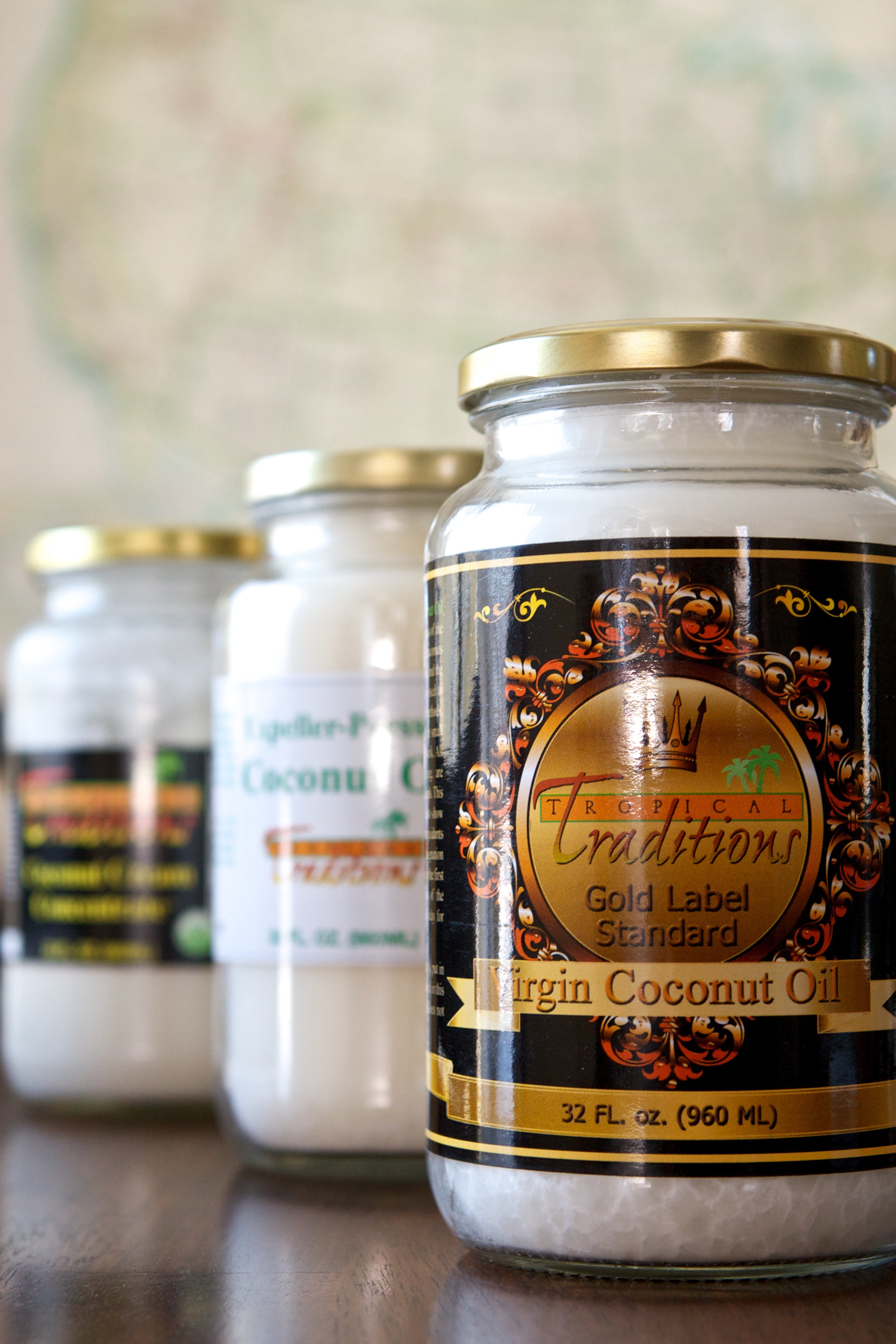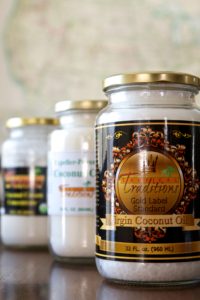

Maybe it reminds us of a warm beach vacation. Or sipping a pina colada. But whatever the reason, many Americans are making coconut oil a part of their diet.
But be warned– coconut oil is extremely high in saturated fat. In fact, 92% of the fat in coconut oil is saturated. To put this in context, the fat content of butter is 63% saturated fat.
As a nutrition researcher, I’ve spoken with many Americans about their diets, and lots of people are excited about coconut oil. I’ve heard every claim– it promotes brain health, it helps you lose weight…I could go on. The truth is, the evidence isn’t strong for any of these claims.
It’s time to set the facts straight. Let’s discuss two common “myths” around coconut oil.
Myth 1: Saturated fats from plants are less harmful than animal saturated fats. Many foods contain saturated fat, such as steak, butter, and–you guessed it–coconut oil. Some people claim that plant-based saturated fats are less harmful than saturated fats from animal sources. While differences do exist between plant-based and animal saturated fats, this claim is false. Saturated fats from red meat, butter, and coconut oil all contain carbon, hydrogen and oxygen atoms, but they contain different numbers of each of these atoms, which makes them chemically different. But that’s where the differences end.
Let’s compare butter with coconut oil. The saturated fat in coconut oil is comprised mainly of a saturated fatty acid called lauric acid (which has 12 carbon atoms, 24 hydrogen atoms, and 2 oxygen atoms). Butter consists mostly of a saturated fatty acid called palmitic acid (which contains 16 carbon atoms, 32 hydrogen atoms, and 2 oxygen atoms). So yes–the saturated fats in coconut oil and butter are different, but they actually have very similar effects on our bodies. Feeding studies show that both lauric and palmitic saturated fatty acids raise our body’s cholesterol levels, which can lead to all kinds of health conditions, including heart attacks and strokes. Additionally, scientists recently combined data from 21 studies on coconut oil and found no evidence that coconut oil should be viewed differently from other sources of saturated fat. Thus, despite the chemical differences, saturated fats have similar effects on our health.
Myth 2: Coconut oil helps you lose weight. The myth that coconut oil helps people lose weight probably comes from a study in 2008 on how the human body processes different types of stored fat. All living things store fat in two types of molecules known as triglycerides: medium-chain triglycerides (MCTs) and long-chain triglycerides (LCTs). When a human, animal, or plant needs energy, these fats are broken down. The 2008 study by Dr. Marie-Pierre St.-Onge showed that eating oil rich in MCTs can increase a person’s ability to break down fat more than oils rich in LCTs, leading to faster weight loss. Coconut oil contains MCTs, so this is seemingly great news for coconut oil supporters. But dig a little deeper, and you’ll find out that the science is much more complicated.
First off, St-Onge’s study used an oil that contained 100% MCTs. But coconut oil contains only 4% MCTs. Therefore, St.-Onge’s study cannot be generalized to coconut oil. And what’s more– St.-Onge published another study in 2017 that showed that small doses of MCTs do not help with weight loss in overweight adolescents.
Additionally, MCTs containing lauric acid (remember, this is the main fatty acid in coconut oil) are heavier than other MCTs. To give you some numbers, the average weight of a triglyceride in coconut oil is 638 grams per mole (g/mol), versus 512 g/mol in other medium-chain triglyceride oils. The heavier weight of the triglycerides in coconut oil means they are broken down by the body differently than other MCTs. (If you’d like a more detailed explanation of this process, click here.) This is another reason as to why many studies on MCTs, such as the 2008 St.-Onge study, cannot be generalized to coconut oil.
Unless you’re using coconut oil to moisturize your skin, it should not be in your pantry. The science shows that unsaturated fats—like olive oil and avocados— remain the healthiest types of fat. So you can indulge in that pina colada periodically, but my everyday advice– let’s ease up on the coconuts!
Peer Edited by JoEllen McBride
Follow us on social media and never miss an article:
Very informative and interesting, considering the hype over coconut oil right now. Will be sharing this article!